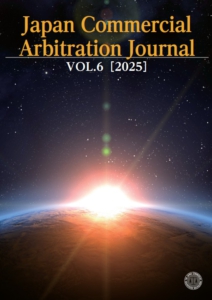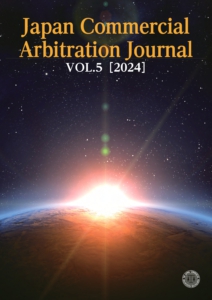New Volume of the Japan Commercial Arbitration Journal – Vol. 6 [2025]

The Japan Commercial Arbitration Association (JCAA), one of the oldest international arbitration institutions in the world founded in 1950, has published the 6th Volume of its annual journal on commercial arbitration: Japan Commercial Arbitration Journal.
The journal features articles on international commercial arbitration, mediation, and litigation related to Japan. These articles are authored by prominent scholars and experienced practitioners who are well-versed in the resolution and prevention of international commercial disputes.
The Japan Commercial Arbitration Journal is particularly valuable for non-Japanese readers, including foreign researchers and practitioners, as it provides insights into Japan’s approach to international dispute resolution. By offering comprehensive analysis and updates on arbitration, mediation and litigation practices in Japan, the journal helps bridge the knowledge gap for those working in international commercial law. Access to this information is essential for professionals seeking to understand the nuances of Japanese legal procedures and effectively engage with Japan in cross-border commercial matters. Read more


